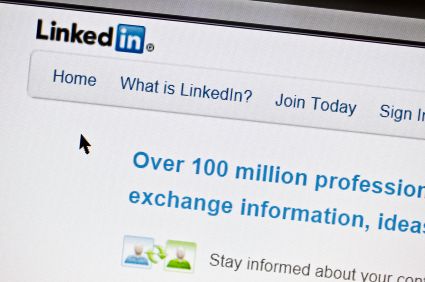Thứ Ba, 30 tháng 4, 2013
Get Ahead of your Coworkers during the Holidays
Many of us wait for a holiday to relax, sleep more and spend quality time with family and friends. These are essential and important in life; however, some of the holiday time can also be used to excel and get ahead of your current coworkers. Remember, going the extra mile and showing dedication during holiday time to improve your professional growth and job performance can eventually lead to a raise or a promotion. Akhtaboot presents you with 4 tips that you can follow to help you take advantage of your holiday and get ahead of your coworkers.
10 Phrases That Kill Your Job Interview
Job interviews gone bad
Reprinted with permission from careersinmotion.co.za.

Tweet
If you want to make a good impression during a job interview, it is important to say the right things. Here are ten things you should avoid saying.
Job interviews can be an intimidating process. There are a number of good resources that will help you to learn what the right things to say are during a job interview. It is also important, however, to know what things you should not say during an interview. Here are ten things that you should absolutely avoid saying during an interview if you want to walk away with the job.
1. "I'm sorry I'm late."
If you want to start an interview off on the wrong foot, being late is a good way to do so. Make a good first impression by being on time. Being late tells the interviewer that you do not respect his time, that you are unorganized and that you do not manage your own time well. Most importantly, when you have to start off an interview by apologizing for being late, you have already established a dynamic where you are subordinate to the interviewer rather than being an equal. This will hurt you immensely during the negotiating process.
2. "I left my old job because my boss was a jerk."
A prospective employer does not want to hear you bad-mouthing your old boss. When she hears you complaining about what a jerk your old boss was, all that is going through her head is that, someday, this is what you will be saying about her. Even if your ex-boss was a jerk, your prospective boss does not want to hire someone who, it seems, cannot get along with others, cannot accept responsibility and who is not a team player. Stay away from the negative, and focus on the positive. For example, does this new position offer more opportunities for responsibility and advancement? These kinds of things are what your prospective boss wants to hear.
3. "I'm just looking to work here until something better comes along."
Sometimes in life, we do have to accept employment that is less than ideal in order to keep food on the table while we are looking for something more appropriate. Your prospective employer does not want to hear this, however. He believes in what his company does, whether it is flipping hamburgers or washing cars or constructing luxury high-rise apartments. Every company makes its own contribution to the whole of society, and when a prospective employer asks you why you want to work for his particular company, he wants to know that you understand, respect and value the significance of his company.
| 1 | 2 | 3 | Next Page
Thứ Hai, 29 tháng 4, 2013
10 Uncommon Job Hunt Tactics that Work
Getting a job through unconventional means

Tweet
Before you can get a job, you need to know which job search strategies work and which do not. Take a look at these tips to find out how to make your job hunt more effective.
1. Hire a cold caller.
Cold calling to get a job really works–if you're good at it. Your ability to sell yourself on the phone shows exceptional sales skills, self-confidence, drive, and commitment. But most cold calls are executed poorly for the job hunt.
Debra Feldman is a professional cold caller at Job Whiz; you hire her to get you a job, and she can do it. By cold calling CEOs. What's the catch? She costs thousands of dollars. So consider teaching yourself the skill well enough to talk your way into a job where you can afford Feldman. You can definitely learn how to get a job from this as confidence on the phone will often help you with your career development.
2. Use proactive recommendations.
Instead of waiting for a hiring manager to ask for job references, have your job reference call immediately. This works well if you have a heavy-weight reference, like a well-known CEO or someone who knows the hiring manager. But it also works well if you have little career experience. In fact, if you are just starting out with your job search it's a great tool.
"The good employers have relationships with professors and they forward students who seem exceptional," says Joel Spolsky, chief executive of Fog Creek Software and author of the blog Joel on Software.
Also tap your job coaches. They tend to know students well after meeting daily for practice over the course of a few years. "A coach has extended knowledge of the students' personalities," says Tom Carmean, head lacrosse coach at Amherst University, who has given many references to employers. To start your job hunt off on a good start, this is one tip to consider for sure.
3. Stay organized with job hunt software.
How many times have you put the wrong name on a cover letter? Forgotten where you applied? Forgotten what the job was? You need to be organized right off the bat – maintain an Excel spreadsheet with all your contacts. This essential for the job hunt.
For a serious job hunter who recognizes that a hunt never ends, you could try JibberJobber, which not only helps you organize your information, but can bug you about the things you should be doing but might not be, such as following-up with a phone call. So to be successful in your job search, consider this technique.
| 1 | 2 | 3 | Next Page
Thứ Sáu, 26 tháng 4, 2013
5 Ways To Waste Your LinkedIn Account
The job is yours through LinkedIn - if you know to snag it

This post was written by Elliot Lasson, the Executive Director of Joblink of Maryland and writer at http://joblinkofmaryland.wordpress.com.
Tweet
By now, most people know that LinkedIn is the world’s most popular professional networking site. Yes, I have drunk the Kool-Aid and am a big fan.
However, while LinkedIn has many useful capabilities, many people do not use it properly. This ranges from not having an account/profile at all or overusing it. If LinkedIn is not appropriately utilized it will be ineffective or even counterproductive. Also, given the fact that recruiters will often check out your LinkedIn profile, it is critical to have a positive LinkedIn presence.
In this piece, the top 5 mistakes which job seekers and other professionals make on LinkedIn are presented:
1. Incomplete, underwhelming or multiple profiles
An essential step in developing your network is by inviting potential connections to join it. Connections might be colleagues, friends, or relatives. This must be done one person at a time. A prerequisite to sending invitations is starting with a complete Profile. This means developing your Profile in a manner that includes relevant information from your resume and having one or two professional recommendations. LinkedIn will walk you through the steps involved and provide a progress bar as to how close you are to “Profile completion”.
2. Insufficient number of connections and weak invitations
Simply creating a profile and not developing a network is not good form. Inviting connections can be done through entering the person’s email address, through a preexisting organizational affiliation, through an alumni group, or through a niche group. While there is no magic number as to the optimal number of 1st degree LinkedIn connections, it is certainly greater than 0 or 1. Make sure that you do not somehow have multiple profiles, as you don’t want people confusing the “old” you with the “new” you. When inviting people whom you do not know, you must provide some context. Do not simply use the impersonal default message. Having a phone or in-person conversation or sending an email before the fact is often helpful before requesting the person to join your network. If too many people whom you invite click “I don’ know this person”, you will be put into the equivalent of “LinkedIn timeout”, which will then require you to always have the email address of future invitees and you will not be able to simply connect through some other LinkedIn relationship.
3. Failing to proofread for mistakes
One turnoff to consumers of your Profile is seeing spelling or spacing mistakes either in your profile or in requests to connect. You should definitely proofread your information before going “live”. If you identify yourself in your Profile as a “Profesional Profreader”, a writing job at the local newspaper is unlikely to be in your future. This also includes those for whom English is not a first language. Since we often miss mistakes in our own profile, it would be a good idea to have your Profile proofed by someone else and you return the favor for his/hers.
| 1 | 2 | Next Page
Thứ Tư, 24 tháng 4, 2013
BUiD Hosted Its 2nd Successful Biz Quiz at GETEX
Dubai, UAE
April 24th 2012
The British University in Dubai organized the 2nd Inter-collegiate BizQuiz at GETEX on April 18th 2013 in Dubai International Convention Centre. The competition was designed for University and college students pursuing their undergraduate studies. The competition was attended by Prof. Abdullah Alshamsi, Vice Chancellor of The British University along with Academics and staff from the University. The event was sponsored for the second year by E Max, Uni Magazine as the official publication of the event, Akhtaboot as the on-line recruitment partner, Dubai International Academic City as support sponsor and GETEX as the main education partner.
Prof. Alshamsi commented:
"We are delighted to have had the opportunity as a local University to inspire students thinking and challenge their knowledge in such an exciting competition. I am equally delighted with the quality and intelligence shown by the participating students; it is a testament to the quality and caliber of the students we have in the UAE."After the preliminary competition, five teams qualified for the final round of the competition whereby the participants were challenged to put their knowledge to the test. The quiz had many interesting rounds which kept the audience entertained. The Audience got the chance to test their knowledge, and the two lucky winners received a Samsung Nexus 7 each. The thought provoking questions created an atmosphere of fun and enthusiasm among the competitors and the audience as well.
Dr Elango Rengasamy, Head of the Finance and Banking programme at BUiD and the quiz master commented:
"I’m very happy to see students compete with such enthusiasm. This competition gave the students the much-needed opportunity to test their knowledge and the chance to interact with students from other universities in a healthy and competitive environment."The winning teams in the competition were 'Xcel' from Szabist University who won each a Smasung Note 2. The second place winner was BIT – TMKs from BIT Mesra, the Offshore Campus RAK, and they won each a Nexus 7 and in the third place Inglorious Quizzards from Bits Dubai and they won each an IPod.
The winning team expressed their happiness in participating:
"It was truly a fun and an exciting experience. Also it was very informative and competitive at the same time. The BUiD Biz Quiz was very well organized and we are happy to be competing in it for the second year."The success of the event echoed last year’s event success as a testament to BUiD’s willingness to encourage knowledge and healthy interaction between students from different institution.
3 Things Employers Look for on Your Resume
Write a resume that gets an employer's attention

Tweet
Ever submit a resume and wondered why you didn’t even get a call, when you felt that you were ideal for the job? Ever felt that your resume was buried in a database and not even getting seen?
Chances are your resume didn’t demonstrate the 3 things an employer looks for on a resume. Even in the prescreening process (databases, recruiters and HR staff) are instructed to search for these 3 things, by the keywords they search for.
If you can clearly present these three things in your resume, you give yourself a much greater chance of scoring an interview. But what are they?
#1: Can the candidate solve the specific top problems I have today? An employer is searching for evidence that you can solve their unique top problems. The best way you can demonstrate that you can solve their top problems is by clearly demonstrating that you’ve already solved those exact problems. Most resumes do a poor job answering this question, as most candidates create resumes that demonstrate general problem solving skills rather than solving the unique top problems a specific employer has today.
• Do your research to find out the specific problems, challenges, and goals a company has today
• Do more research to determine how those corporate challenges, problems, and goals affect the department and hiring manager
• Don’t just list broad industry skills, hoping it meets your target’s needs
• Don’t just say that you can learn – Beyond entry level jobs, few companies will pay you for training or ramp-up time when they can find plenty of candidates who won’t need training
#2: Can the candidate build shareholder value?
Outside of the non-profit world, a company is willing to pay an employee because they believe you will make them more money than they pay - You are an investment. The best way you can demonstrate that you’re a profitable investment on your resume is to demonstrate how you’ve already built shareholder value for past employers and clients. Most candidates forget this notion, writing a resume that focuses on what they themselves want or a resume that describes how they spend their day.
• Do your research to find out the type of value likely to be important to this specific company, department and manager
• Demonstrate your value in numerical results or percentages
• Translate your accomplishments to shareholder value
• Claim responsibility
• Don’t emphasize responsibilities
• Don’t emphasize your past companies accomplishments over your specific achievements
| 1 | 2 | Next Page
Thứ Ba, 23 tháng 4, 2013
Using Social Media to Boost your Career
Are you using social media effectively to market yourself? Your social media presence has become an integral part of your online personal brand which would not only help you in your job search but also in your career building. Akhtaboot provides you with some basic rules that would assist you in building stronger and a more successful social media presence.
10 Ways Your Job Interview Could Go Horribly Wrong - Part 1
A Job Interview Miniguide
This article was reprinted with permission from responsewebrecruitment.co.uk

Tweet
Unfortunately a lot of people think that the hard work has now been done and that they can simply turn up to an interview and stroll towards a job offer.
The reality is that getting an interview is a great start, but if you really want to bag that job then this is where the hard work really starts.
Having interviewed a number of people myself over the years, I’ve seen so many candidates fail to prepare and as the old cliché goes, prepare to fail.
So, I’ve listed below the first five of the most common things that could go wrong in the interview process.
Remember that with most of the examples, you are in control and if you prepare as well as you can, you will give yourself the best chance at securing that move.
Let’s kick off with the absolute basics….
1. Failing to understand what the company does
Most job interviews start with the question, “So, tell me what you know about the company”. Make sure you take the time to take a look at the company’s website and research the key facts about the business.
This isn’t a case of spending hours learning everything there is to know about the organisation. Ten minutes on their website or a look at company house, will tell you when they started in business, how many employees they have, which areas of business they are focused on and where they are going in the future. It may also be worth looking at sites like www.newsnow.com where you can search to see if the company has posted any news articles and what is going on in their particular sector.
You may even want to consider looking at LinkedIn and search for individuals who are currently working in that business to see what backgrounds they come from. Try and also find the interviewer on LinkedIn or even Google them to see if you can find out what makes them tick.
Job Research is a must and by carrying it out it will show you are serious about the position you have applied for. Not doing your research will start the interview off on the wrong footing and the next 55 minutes will probably be painful!
2. Failing to arrive on time for the interview
You race across the car park, and arrive to the interview ten minutes late and now you are sweaty and anxious. You are immediately on the back foot and at a disadvantage to all those being interviewed for the position. Let’s face it, would you employ someone who can’t make it to work on time?
Again, this is where preparation is key; plan your journey, leaving yourself plenty of time for unforeseen problems such as late trains and traffic.
Print off maps, practice your route and arrive at least 10 minutes before your interview is due to start. This will give you a last chance to look over your notes and gather your thoughts.
| 1 | 2 | Next Page
Hey Grads! No Experience? No Problem! (Sort of)
Advice from a fellow college graduate
This post was written by Brianna Raymond, a Content Writer and Certified Professional Resume Writer (CPRW) at PongoResume.com. It originally appeared on The Pongo Blog on May 12, 2010.
Tweet
I graduated from college two years ago (four now!) with the notion that having a college degree would serve in place of experience and pretty much guarantee a decent starting salary in a first job. And finding that first job was going to be a piece of cake with a degree to boast. Knowing what I know now, I couldn't have been more foolish.
What I Learned about Experience, from Experience
1. You have it, but it's not the right kind.
The "Experience" section of my pre-graduation resume looked a little something like this: Pizza Place, 3 years; Some Pharmacy, 2 years; This Gym, 5 months. In my mind, this kind of work record showed a prospective employer that I'm a good, loyal worker. But if the jobs and skills are irrelevant to the field of work you're looking to enter, your resume will appear weak and incomplete. And that's where point #2 comes in ...
2. Your free time in college counts for more than you think.
College meant the freedom to schedule my own day. To be done with classes by noon or to not even start until 4 p.m. Oh, and the parties? Yeah, those were really something. But what about student activities and clubs? Or the internships advertised around campus? Not only did my contributions to the campus newspaper and my summer internship at a publishing house give me valuable experience for the workforce, they also gave me a stronger resume that secured interview after interview.
| 1 | 2 | Next Page
Thứ Bảy, 20 tháng 4, 2013
SWAG: Racial Bias in Pain Perception
 |
| Tom Brady is no stranger to pain (source) |
This week in SWAG we read an article about racial biases in perceptions of others’ pain. The American medical field has a long history of racial bias (Note: I think if you switched the words “medical field” with almost any other field, the sentence would be factually accurate. For example, “mathematics field” or “psychology field” but not “magnetic field”). American blacks tend to be diagnosed less accurately by medical staff than whites, to receive less optimal health care, and to be cared for less intimately. The authors, led by Sophie Trawalter of the University of Virginia, wondered about the source of this racial bias. They reasoned that it might arise in part from a belief that low status groups experience less pain than other groups in society. Blacks and other traditionally low status groups in America are perceived as having overcome greater hardships throughout their lives. As a result of contending with, and overcoming these hardships, low status groups are perceived to experience less pain than their more advantaged counterparts—their tough circumstances have made them tougher. This racial bias in pain perception is theorized to underlie the black-white treatment gap in medicine.
Thứ Sáu, 19 tháng 4, 2013
Resume Ignored By Online Application Sites? Here's Why.
Is your resume standing out in the pile?

Tweet
You’ve filled out hundreds of online job applications, and have never heard from an employer. You are beginning to feel rejected, unloved and unappreciated. Why doesn’t anyone call back? The reason may be in your resume and you haven’t noticed it.
I'm going to start with the assumption that your resume is neat, truthful, printed in a simple font, no smaller than 11 points, no more than two pages covering the last 10 years, and that it is spell-checked and proofread. No “manger” for “manager,” no “it’s” when it should be “its.”
There are two areas that will get your resume ignored–fast. One of them is the “Objective” statement. Anything vague gets you rejected. “I’m looking for an exciting job to advance my career,” is an example of a sinker. So is “Powerful executive with 20 years of increasing responsibility available for lateral applications of bricks-and-clicks viral e-marketing,” or anything else that looks like it comes from a jargon generator.
The objective is not a PR statement–the purpose is to get you hired. You will need a new one for every job you apply to. Hate the idea? Then get used to longer unemployment.
Your resume is being scanned for key words every time you submit it. If you don’t have the right key words, your resume will be shot into the shredder. What are the magic key words? Read the ad. The job description contains the key words. That’s why you need to change your objective for each job. Because the key words change. Look for nouns (titles, duties, responsibilities), not verbs (action words). You’ve probably been taught to create a “results oriented” resume. They don’t work anymore. Everyone “generated top results,” “managed profitability” and “won industry-wide awards,” and the scanner is not interested.
| 1 | 2 | Next Page
Thứ Năm, 18 tháng 4, 2013
The Daddy Chronicles: What Happened To My Testosterone?
 |
| Zoë at two weeks |
And yet, despite knowing the changes that fatherhood has brought on in my own life, I was still shocked to read about this little finding published in 2011 by Gettler and colleagues--fatherhood reduces testosterone... a lot.
Read More->
Thứ Tư, 17 tháng 4, 2013
Famous Resume Myths - Debunked!
Resume writing myths you may have heard, but should forget!
Reprinted with permission from wetfeet.com.
Tweet
There is no one best way to write a resume; there are no absolutes. Every career counselor and recruiter has his or her own take on resume writing. Even the formatting you use and the positions you list depend on the industry, the specific job, and your experience. But amid all the potentially conflicting opinions, there is some agreement on common resume myths.
1. Your resume must be only one page.
False. "Your resume should be as long as needed [in order] to get your concise message across with zip and punch," says Joyce Lain Kennedy, careers columnist and author of Resumes for Dummies. If your experience and background justifies two or more pages, so be it. Recent grads shouldn't go beyond one page, but senior executives with decades of experience will probably need at least two pages.
The rules are slightly different for resumes sent via e-mail. Laura Dominguez Chan, a Stanford University career counselor, says that in that instance, shorter is better for both cover letters and resumes.
2. Prospective employers don't read cover letters.
False. "Remember that anything you send is part of an image you're projecting," says Dominguez Chan. "If [nothing else,] your cover letter shows your writing skills…and if all the candidates [for the position] really are top notch, it could be the cover letter that lands you the job."
3. Resumes should include and describe your entire work history.
False. Your resume is a sales piece, a personal marketing tool. Take time to consider what skills the position requires. It’s likely that a part-time job you took for a few months isn't going to be relevant or impressive. Unless you need to cover a significant time gap, it’s wise to include only those jobs that will showcase your ability to excel in the position for which you’re applying.
Volunteer and other non-paid positions can be just as valuable as paid ones—especially if you’re a recent grad or are re-entering the workforce after an absence. Use your resume format to communicate volunteer work as experience.
| 1 | 2 | Next Page
Is My Job Search Doomed if I Don’t Have a Network?
Job search fact or fiction?

Tweet
Your job search is not doomed, but without networking you are doomed to suffer a longer more difficult one.
Although networking is important, it is only one piece in a multiple-channel job search marketing strategy. You help yourself best by working all your channels. Some other channels are:
- Online networking portholes such as LinkedIn, Facebook and MySpace
- Recruiters and Search Firms
- Job sites such as Indeed, LocalJobNetwork, Ladders and CareerBuilder
- Targeted mailing and Informational Interviewing
- Career Fairs, Trade Associations, and Community Organizations
Nevertheless, many jobs are found by being at the right place at the right time and that means a lot of deliberate networking. Some may say, “Being at the right place at the right time is all luck.” I don’t. I say it is resultant of “preparation” meeting “opportunity.” If you are not prepared, you may have opportunities looking you in the face and never know it; or you may recognize an opportunity and not be prepared to take advantage. It is only when preparation and opportunity meet you are likely to win a job.
The caveat: Opportunity is actually a compound-variable in the equation. The other piece to “opportunity” is “time.” In other words, you can be in a lot of right places (potential opportunities) and be prepared for each, but without a crystal ball you will not know it’s the right time until you get there. So, you must be in a lot of right places at ONE time. Implementing a strategy using multiple channels simultaneously will virtually have you in many places at one time. Equation solved! Of course everyone will say, “You were lucky.” I’ll say, “You were prepared.”
As for the networking piece of the simultaneous multiple-channel marketing strategy…
I will tell you what I tell those who have substantial networks and still suffer hard times: Make it easy for others to help you and they will. Whether you are looking to build a network or jump-starting a stalled (existing) network, here are several tips that can help:
1. Start building permanent relationships while you are still employed.
2. Become known in professional associations.
3. Reacquaint yourself with peers in other companies.
4. Push out emails to update friends and acquaintance.
| 1 | 2 | Next Page
Thứ Ba, 16 tháng 4, 2013
Develop Good Co-worker Relations
You can choose your friends but you cannot choose your colleagues! It is very important to develop and maintain good workplace relationships; they help you do your job better and can make work more enjoyable. On the other hand, bad workplace relationships can distract you and turn your job into a nightmare. Akhtaboot provides you with 5 tips to follow in order to have peace at work and develop good relationships with your co-workers.
4 Tips To Answering The Toughest Job Interview Questions
Tricks To Ace Your Job Interview In No Time
This article was reprinted with permission from http://www.careerealism.com
Tweet
From blatant job interview questions like, “What’s your greatest weakness, weakest attribute, or most significant failure.” To soft, “What might your previous employer say?” Even softer, “You certainly seem to have a lot of strengths, but we understand no one is perfect.” The question will come one way or another, everyone knows it, yet still befuddled by it.
There have been many Rules of Thumb (R.O.T.) developed over the years, from making light of the question with an answer like “Pizza!” to true confessions, putting a cloud over everyone, to developing a response that actually demonstrates a strength, “I tend to be a workaholic,” or “perfectionist.” (Yuk!)
In principle, Rules of Thumb are meant to have very broad application such as, “when in doubt, get out.” Great advice if you are in the middle of an intersection and the light changes. Would it apply in the final seconds of a game, you’re down 3 points and have the ball? What, you’re going to walk off the floor? I don’t think so. I find many R.O.T. (pun intended) to be off the mark and misleading. What may be good for one may not be for another. That is not to say there are no rules that can be applied; there are. Just choose your medicine carefully.
When answering interview questions, here’s the first rule…
RULE #1 – Stay positive…ALWAYS!
The “what’s your greatest weakness” question is your opportunity to shine. One way is to demonstrate you are a positive person by nature. Everyone likes a person with a positive nature, right? Remember you are in the interview to make yourself desirable for hiring, so you might say, “I rarely sit there and think of myself in those terms, nevertheless, I do want to respond to your question,” or something on those lines. Notice by the way I did not say, “I rarely sit there and think of my weaknesses.” Here’s a rule of thumb that always applies: Do not use or repeat negative terms, even if the interviewer throws it out there.
Here are three other rules I suggest you follow:
RULE #2 – No superlatives!
Keep it singular. Superlatives such as “weakest” or “worst” or “biggest” indicate the greatest degree of whatever is it describing. “Worst weakness” is the weakness of the highest degree implying there are other weaknesses of varying degrees but weaknesses nonetheless. That begs the question, “What are some others?” Likewise, “need most to improve” implies there are others areas for improvement. In any case, try this as an alternative, “If I had to come up with one…” (No negatives; no multiples).
| 1 | 2 | Next Page
Thứ Hai, 15 tháng 4, 2013
How to Use LinkedIn to Get a Job
10 ways to use LinkedIn like the job search tool it is

Tweet
In today’s electronic age, LinkedIn is an essential tool for all job seekers. Because the site is an online network for over 8.5 million experienced professionals, many hiring managers and recruiters scour LinkedIn profiles to find top quality candidates.
If you’re an active job seeker you must join LinkedIn and learn the many ways the site can enhance your job search or career.
Here are 10 tips to help you enhance your job search using LinkedIn:
1. Complete your profile thoroughly. Think of your LinkedIn profile as your executive bio and complete your profile thoroughly. Often when clients tell me they’ve completed their profile and I go look at it, it’s rarely complete. This is what I mean by complete:
• Include your picture as it allows for a deeper sense of connection to you and should be part of your brand on all social networking sites.
• List your education, past employers, professional affiliations, awards, and keywords related to your jobs and activities. Some people advise to include employment only up to ten years ago. That is often good advice, not always. I’ve been a career coach for 10 years and previously I was an executive search consultant and recruiter. Letting people know I spent many years helping people to land jobs adds to my credibility as a career coach. See http://www.linkedin.com/in/minosullivan. Use your best judgement on this one.
• Contact past supervisors, peers and subordinates for recommendations. Also include recommendations from customers, clients and colleagues. Hiring managers and recruiters regularly check recommendations to vet potential candidates.
• Create a descriptive headline (under your name). The generic title “Corporate Attorney” will not inspire many, but IPO Specialist will certainly attract those seeking to take their companies public. Make sure your headline is something your target audience is looking for.
2. Build your network. Build your network to increase the likelihood that your profile will come up at the top of the list when hiring managers/recruiters are looking for candidates. Invite five people a day, every day, to join your network and you’ll be amazed at the results. If you’re VP Marketing, you don’t want to show up on page 10 when people are looking for marketing pros. You want to be on page 1. The more contacts you have the higher you’ll be.
| 1 | 2 | 3 | Next Page
How to Pay Off Credit Card Debt After Graduation
Advice from a fellow college graduate
This guest post was written by Go Banking Rates, bringing you informative personal finance content and helpful tools, as well as the best interest rates on financial services nationwide. Follow them on Twitter at @GoBankingRates and on Facebook at /GoBRates
Tweet
Did you know that the average college graduate is about $20,000 in debt at graduation while the average salary for a new grad is only $30,000? Unless you plan to somehow live off of ten grand for a year, you're going to need a solid debt-repayment plan.
It's not just the student loans that rack up debt either. According to StateUniversity.com, college students spend $11 billion a year on snacks and beverages, $474 million on music sales, $658 million on theater tickets, $341 million on games and $50 per month on beer every year. If you can relate, you are likely graduating with substantial credit card debt in addition to bills that are specifically school-related.
Which Debts to Pay First
After graduation, you are in a very fortunate financial situation compared with the older population. First, you may have bills to pay, but they certainly aren't going toward a mortgage or braces for your kids. Your life comes with few strings attached, which gives you the opportunity to pay off your debts fairly quickly and start the next phase of your life with a clean slate.That said, there is a right way and a wrong way to pay off post-college debt. Most importantly, DO NOT pay only the minimum required on your credit card.
Here's why: Your total debt probably includes student loans, which usually have the lowest interest rates. They also tend to allow you a grace period after graduation during which you don't have to start making payments yet. Plus, student loan interest can be written off for up to $2,500 per year.
Other debts, like car payments, financed furniture, etc. will be more expensive when you carry a balance or miss payments, and credit card interest rates are the highest of all (U.S. average of 16.85% APR). If you make minimum payments on your credit card(s) while trying to tackle several other debts at once, you will end up paying thousands more in interest payments.
So what's the right way? It's best if you can tackle those expensive credit card bills first and get them out of the way. Then, move on to smaller amounts you owe.
| 1 | 2 | Next Page
Thứ Năm, 11 tháng 4, 2013
6 Tips to Shorten a Job Search
Is your job search efficient?
By Megan Marie Sullivan

Tweet
The economic outlook has been looking very grim, and can be disheartening to those of us who are trying to enter the job force for the first time. However, a savvy seeker can get into the game quickly if he or she keeps a few simple rules and tips in mind:
1. Your full-time job is to find a full-time job:
Every workplace has its standards, and so should your job search. In a competitive market, a job seeker should apply for 10-15 positions a day, and plan to follow-up with a phone call after a week. Keep an organized list of companies, positions, and contact names, as well as a calendar of appointments and interviews. Remember that time is still money (now it’s just money you are not making) so use it wisely.
2. Friends and family want to help
Often this is the key source of job leads. Human resource personnel often look for potential job candidates through their current employees, as it saves them the time of scouting and money incurred in posting job ads. One important thing to remember, however, is that they do not always do a perfect job. Sometimes family members will recommend you for a position without a clear understanding of your skills, or friends will ask you to contact a company that you do not think is a good fit. It is important to consider all leads that arrive through your primary resources, as they might stop being your job advocate if you turn down what they think is a good offer!
3. Use the Internet wisely
Specifically, take your search beyond Craigslist.org! Indeed.com and linkedin.com are great sources for job leads. Careerbuilder.com and Monster.com now allow you to create profiles so that you can apply without re-uploading your resume. Npo.net and idealist.org feature non-for-profit postings. For highly-focused searches, do a search on Google Maps for the type of company you want to work for within your desired geographic zone. From here you can find a list of websites for companies that you want to work for, and can check their career pages for job openings, or send your resume for consideration.
| 1 | 2 | Next Page
Thứ Tư, 10 tháng 4, 2013
20 Common LinkedIn Mistakes Online Job Seekers Make
Online job hunting made simple

Tweet
You probably know by now that LinkedIn is a powerful networking tool for personal branding and job search. In fact for job seekers it's one of the best online tools to land a job right now.
In case you don’t know about LinkedIn, get busy immediately building your branded profile, connecting with people, expressing your executive brand, and leveraging LinkedIn to full advantage.
But don’t make these 20 mistakes:
BUILDING YOUR PROFILE
1. Not personalizing your LinkedIn public profile URL.
Many people leave the default mess of letters and numbers at the end of the URL. Change that to “yourname” or as close to it as you can come, as I did with mine – http://www.linkedin.com/in/megguiseppi
2. Not including a photo.
Branding and career marketing are about creating emotional connections. People believe content more when it’s accompanied by the author’s photo. An online profile with no photo is a missed opportunity to reinforce your brand and engage people.
3. Not adding links to websites or web pages.
Include links to your website, blog, VisualCV, Twitter or other online profiles, so people can get more on-brand information about you and see what else you’re up to.
4. Not having a searchable professional headline that brands your unique promise of value and resonates with your target audience.
Make sure your relevant key word phrases show up in your headline so that recruiters and hiring decision makers sourcing top candidates by searching LinkedIn will find you.
| 1 | 2 | 3 | 4 | Next Page
Thứ Ba, 9 tháng 4, 2013
Effective Job Search Techniques
No specific job strategy will work for every applicant. However, best job search techniques involve knowing how to position yourself in the job market, actively putting yourself in front of recruiters and preparing a stellar CV that will make you stand out from the crowd. Traditional job search methods might not do the job in this competitive market, you have to be smart and creative in order to find the career path you envision for yourself. Akhtaboot provides you with 3 key strategies for an effective job search.
7 Words That Make Your Resume Irresistible
A great resume's ingredients

Tweet
Make no mistake about it, writing an effective resume has to be a highly individualized matter, since no two people are alike. Nevertheless, it is such a constricted and standardized format, that we resume writers find ourselves adopting certain phrases or words that each of us tends to prefer and that in fact help our clients get jobs. Every resume writer has his or her own list. Here is mine:
1. "$3,000,000" (vs. "$3M") - To a skimmer's eye, "$3M" looks like three dollars. If you are dealing with big numbers and write out all the zeros, the employer's eye will find it anywhere on the page, no matter how fast they are skimming through your resume.
2. "Created a database for..." (vs. "Developed a database for...") - "Developed" is an overused and nondescriptive word. Often databases, procedures, lists, or whatever other job activity you are writing about is something you actually put together (even if you used a standard software program to do it, for example). "Created" is closer to the truth and is certainly much more impressive on your resume.
3. "Applied xyz methods..." (vs. "Learned xyz methods....") - Many job seekers list important skills or knowledge that they learned on a job on their resume. But that isn't going to impress a potential employer. The potential employer wants to know if you actually used those skills. How and where you learned them is immaterial.
| 1 | 2 | Next Page
Thứ Hai, 8 tháng 4, 2013
8 Steps to Acing Your Phone Interview
Tricky interview questions to prepare for

Tweet
Most first job interviews are via telephone. A hiring manager sees your resume, thinks you may be a good fit, and calls you. It is very important to be ready for that first call because it is your one chance to move forward in the hiring process. Flub it and you won’t get a second opportunity. Make the sales presentation of your experience count.
Control Contact
Do not list every possible telephone number at which you can be reached. A home number and cell number are typically all an employer needs. If your cell is a company phone, list only your home number or obtain a personal cell phone. A company phone should not be used for job search. Do you spend a great deal of time during the day in situations where it would be difficult to talk spontaneously to a prospective employer such as meetings or in a shared office? Make sure you have a very professional voice mail message and check your messages regularly. Return all calls as soon as possible and if you end up in a “phone tag” situation, be persistent and proactive.
Focus
If you receive that first call while driving or any time you cannot devote 100% of your attention to the conversation, ask the caller if you can return the call. Distracted conversations make for poor interviews. When an employer or recruiter calls, they understand the time might not be good and are generally open to scheduling a call for a later time. Try to schedule the conversation as soon as possible and don’t forget to get a name and number for a contact.
Practice Tough Answers
Many people have some sort of obstacle in their current career search or a past problem that may come up in an interview. Be especially prepared to discuss such issues, not because they are more important but because they cause the most anxiety. Knowing what you are going to say to tough questions makes them much less scary.
Google Yourself
Be aware of information about you in the public realm. Make sure you conduct an Internet search on yourself. Employers will be doing this so you need to be on the same page. Be aware that your social media activities will also be reviewed by many employers or recruiters. If you have a Facebook page or Twitter account, it might be examined by employers. Be careful what you put there and don’t be surprised if a related question arises in the interview.
| 1 | 2 | Next Page
You Can Build Credit on an Entry-Level Income
Credit-building tips for new graduates
This guest post was written by Go Banking Rates, bringing you informative personal finance content and helpful tools, as well as the best interest rates on financial services nationwide.
Tweet
If you are a recent college grad, you're probably sick of hearing about how important it is to start building good credit. You know you need a decent credit history so you can one day buy a house, get a new car and obtain the lowest credit card rates. Unfortunately, you don't know how to get that good credit in the first place.
After all, you're just starting out in the job market. Even if you were lucky enough to graduate without much student loan debt, you're probably not earning the most impressive salary (yet). How are you supposed to establish your credit when you certainly aren't ready to take out a mortgage loan and you are perfectly happy with the used car you're driving around now?
Don't worry! Building credit doesn't require you to pull in a substantial income to fund giant loan payments. There are a couple of easy and budget-friendly ways to get your credit going and prepare your finances for the future without taking on much debt.
Option #1: Become an Authorized User
A lot of people are told to go out and get a credit card when they need to build credit. Just charge a small amount every month and then pay it back on time. Simple, right?Well, it would be if anyone would actually issue you a card to begin with. This frustrating vicious circle of needing a credit card to get credit, but needing credit to get a card is often overlooked as the first hurdle young adults face when attempting to establish a credit history.
That's why you should be added as an authorized user on another person's credit card if you can. Authorized users don't actually have to use the card at all, though they can, but automatically share the credit rating of the cardholder. If the cardholder has great credit, congratulations. You do, too.
| 1 | 2 | Next Page
Thứ Sáu, 5 tháng 4, 2013
When Telling Others About Your Goals Compromises Them
 |
| source |
As you think ahead about what you want to accomplish in the next few months and years, you probably have several goals that involve you “becoming” something – like a good athlete or a good doctor. These are called “identity goals” because they are goals to achieve a certain identity, and they can be attained by engaging in identity-relevant activities, like training for a marathon or going to medical school. In order to enact these behaviors, we might tell others about them – “Hey, I’m going to run a marathon this year!” or “Yay! I’m headed to med school in the fall!” Maybe we have the sense that telling others about our intended actions will help us complete them, and subsequently, help us get closer to reaching our eventual identity goals. However, in this post, I am going to describe evidence showing that this is not the case: telling others about our plans for identity-relevant activities can hinder our accomplishment of them.
Top 5 Resume Myths
Writing the right resume

Tweet
From screening job applications to conducting interviews, hiring practices have undergone a dramatic transformation over the past decade. Despite all the changes, common resume myths continue to plague job search practices at all levels. The article attempts to debunk some of these myths.
Myth 1: It's all about the number of pages
The one-page rule is probably the most common myth about a resume. Candidates, even senior executives, use microscopic fonts, leave off important information, use 0.1 inch margins, and resort to a myriad of unhealthy practices -- all in an attempt to restrict their resume to just one page.
Many well-meaning college counselors advise their students to be concise and limit their resume to one page. That was important when you were a student with little or no experience, but why subscribe to the same wisdom after rising to the ranks of a senior executive?
There is an opposing viewpoint. Some job seekers mistakenly believe that if they can somehow balloon their resumes to four or five pages, they will probably be considered for higher-paying positions. What? Will someone offer me $250,000 simply because my resume is ten pages and redundant to the point of boredom?
Content rules. The quality of experience should influence the length of the resume, not hearsay. If you have held only one job, then don’t try to create a five-page resume, but if your background merits a lengthier resume then don’t use eight point fonts in a desperate attempt to fit everything on one page.
If you are too concerned about the length of your resume, consider creating a one- or two-page resume with additional pages serving as an appendix or addendum. I have done that for many researchers and academicians. The first few pages focused on their background, while their publications and presentations were presented as an appendix.
Myth 2: Make up that degree -- no one will know
Lying on a resume is the worst mistake a candidate can make. Even if you pass the background check (very unlikely considering how sophisticated background checks have become), a savvy employer will discover the deception within days, if not sooner.
Apart from the legal ramifications, we live in a professional world that is influenced by social media. At the touch of a button, HR managers across the country can discuss their experiences. Maintaining a good reputation is more important than ever.
| 1 | 2 | Next Page
Thứ Năm, 4 tháng 4, 2013
BUiD’s BizQuiz 2013 2nd INTER-COLLEGIATE BUSINESS QUIZ COMPETITION - ICBQ 2013
The British University in Dubai's Faculty of Business is organizing the first intercollegiate business quiz competition for University and College students in the UAE. The objective of the event is to create a fun-filled atmosphere for learning and acquiring knowledge for University students. Hurry up and register now on: http://akht.bt/buid2013blog





.jpg)